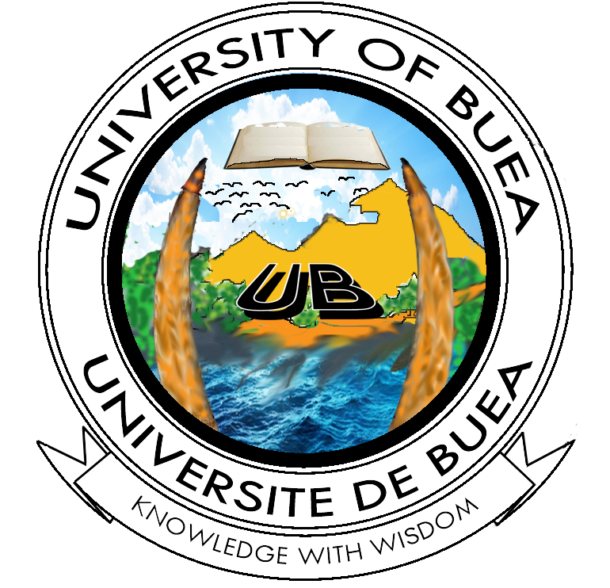Duration: 4 years
Fee Paying: Yes
Admission Requirements
Students wishing to study Biochemistry and Molecular Biology must fulfil basic university requirements, must have passed at least2 GCE Advanced Level subjects including Biology or chemistry or any equivalent certificate. The Baccalaureate series C and D are also acceptable. A pass in Ordinary Level Mathematics or equivalent and English is mandatory. Students are admitted directly into the Combined Honours programme. Conversion from Biochemistry-only into the Combined Honours Programme is not feasible because the practical trainings are different.
Objectives
This is an international programme which is aimed at preparing graduates directly for careers in the bustling field of modern (molecular) biotechnology, essential for:
- Genetic engineering, molecular biology, bioinformatics and molecular biotechnology;
- Genetically modified crops (GMO’s), and improved seeds;
- The Pharmaceutical Biotechnology industry (dealing especially, with the discovery, development and manufacturing of new drugs, diagnostic tests and vaccines);
- Food processing industries;
- Certain specialised aspects of environmental protection (in environmental biotechnology).
-
- This combined programme covers molecular biology, modern biotechnology, physical and analytical biochemistry, nutritional biochemistry, immunology, etc. This is a special programme for which emphasis is laid on practical training and skills acquisition, required for both national and international jobs, and advanced studies in the areas mentioned above. Graduates may gain employment in the medical/pharmaceutical, agricultural and environmental sectors. An internship programme, intended to provide additional practical and technical experiences in academic and industrial settings is included. The training culminates in the fourth year, with a supervised research project required for graduation.
Graduation Requirements
In order to graduate the student must pass all the core courses and must have a minimum credit of240. To make up the total number of credits required for graduation, the student can choose courses in the structured electives categories as he/she wishes and under the supervision of the Department. On completion of the Biochemistry module which normally takes 3 years, a student, on request, may be issued a BSc degree in Biochemistry, prior to completing the four-year programme.
Outcomes
- Production of knowledgeable and skilful graduates with a thorough understanding of the basic principles and techniques of the molecular biosciences needed to meet the ever bustling biotechnology and pharmaceutical markets.
- Provision of in-depth knowledge and practical skills that can enable graduates create jobs and/or pursue research careers in the fields of biochemistry, molecular biology, medicine, agriculture, biotechnology and/or other service industries
- To equip graduates with the capacity and motivation for continued education
Skills Acquired
Biochemistry and Molecular Biology degrees will enable the graduates to examine and understand all forms of life at the molecular level. Thus skills to be acquired in this programme will include
- Skills in areas fundamental to many bioscience disciplines as well as an understanding of biochemistry, Molecular genetics and microbiology.
- Practical and industrial skills that permit graduates to excel in biomedical and allied laboratories, research laboratories and industries.
- Quantitative and qualitative analytical skills and skills to understand, interpret, and explain biochemical data.
Employment Opportunities
Career opportunities in the molecular biosciences and biotechnology, including pharmaceutical research and development, environmental studies, medicine and diagnostics, molecular epidemiology, molecular forensic sciences and nutrition, etc.
Courses
Compulsory Courses
- BCH202: Biophysical Chemistry and Bioenergetics
- BCH301: Structural Biochemistry I
- BCH302: Metabolic Biochemistry I
- BCH310: Genetics
- BCH314: Biochemical Methods
- BCH401: Enzymology
- BCH404: Molecular Biology
- BCH405: Metabolic Biochemistry II
- BCH412: Introduction to Biotechnology and Bioinformatics
- BCH498: Research Project in Biochemistry
- BIO201: Cell biology
- BIO401: Biometry and Research methods
- CHM201: General Chemistry
- CHM242: Principles of Organic Chemistry
- CHM325: Inorganic Chemistry
- CHM343: Chemistry of Organic Compounds
- MAT211: Mathematical Methods
- MCB301: General Microbiology
- MCB402: Immunology
- MOL302: Molecular Biology technologies
- MOL303: Biodiversity of Plants
- MOL304: Genome Organization: fisheries and aquaculture
- MOL305: Biodiversity of animals
- MOL401: Genetics and Evolution
- MOL403: Protein Structure: Land Use and Land degradation
- MOL408: Advanced Molecular Biology
- MOL498: Seminar and Research Project in Molecular Biology
- PHY220: GeneralPHYsics
Language Requirements
- ENG101: Use of English I
- ENG102: Use of English II
- FRE101: Functional French I
- FRE102: Functional French II


